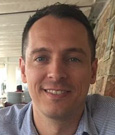
Antony Adamson
The University of Manchester
UK
EMBL Course
This course will provide training in genome editing and cell engineering in mammalian cells and mouse embryos using the highly efficient CRISPR/Cas9 system. Participants will learn design of CRISPR targets using bioinformatics tools, generation of gene knock-outs/knock-ins, and target validation using the most current technologies. The course will be split into two groups (mammalian cells OR mice) based on participants’ expertise.
Please note that all participants are expected to engage in all sessions. Participants should plan for approximately 1 hour extra per day for self paced learning modules.
This course is aimed at researchers who are familiar with basic molecular and cell biology techniques and who want to learn how to create an engineered mammalian cell line or mouse model using the most recent and advanced CRISPR/Cas9 system. No previous experience in genome editing is required.
After this course you should be able to:
“The EMBL course about CRISPR applications for genome engineering was an incredible experience. From the quality of the lectures, the availability of the invited speakers to respond to all questions and doubts, the openness and diversity of participants to the great organization and the impressive facilities and core facility teams working there. It all created a perfect atmosphere for learning about this groundbreaking technique and the inspiring work being done with it as well as great networking. I highly recommend this course.” – Sofia Morazzo, International Clinical Research Center, Czech Republic
“The course covers all you need to organise your CRISPR experiments in great detail. The speakers are fantastic and eager to help with your specific questions. The organisation is also fantastic, where you only have to think on CRISPR and nothing else.” – Sergio G. San Miguel, Max Planck Institute for Infection Biology, Germany
Please see EMBL’s COVID-19 safety policy for testing and other requirements to attend this on-site course.

The University of Manchester
UK
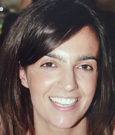
EMBL Rome
Italy
EMBL Rome
Italy
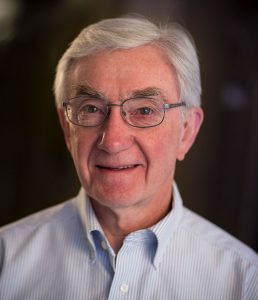
University of Utah School of Medicine
USA
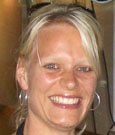
Thermo Fisher Scientific
Germany
Technical University of Munich
Germany
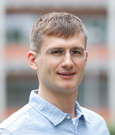
Universitätsklinikum Frankfurt
Germany
EMBL Heidelberg
Germany
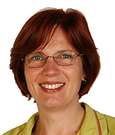
EMBL Heidelberg
Germany
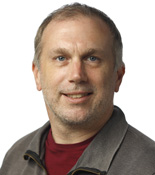
EMBL Heidelberg
Germany

EMBL Heidelberg
Germany
EMBL Heidelberg
Germany
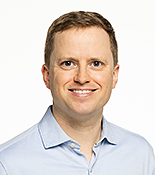
EMBL Heidelberg
Germany
EMBL Rome
Italy
Thermo Fisher Scientific
UK
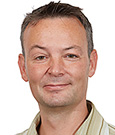
EMBL Rome
Italy
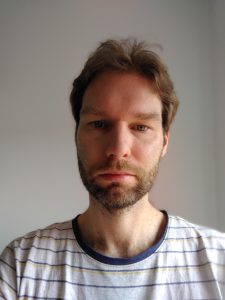
Thermo Fisher Scientific
Germany
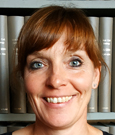
Max Planck Institute for Medical Research
Germany

Course and Conference Team Lead
EMBL Heidelberg
Germany
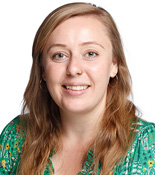
Training Lab
EMBL Heidelberg
Germany
Got something to say? Tweet it! #EMBLCRISPRcas
| Time (Europe/Berlin) | Session | Location |
|---|---|---|
| 16:00 – 16:30 | Registration | ISG Hotel |
| 16:30 – 17:30 | Arrival & Welcome Introduction to course design | ISG Seminar room |
| 17:30 – 18:00 | Icebreaker | ISG Seminar room |
| 18:00 – 19:00 | Live Keynote Lecture: Introduction to CRISPR/Cas 9 Dana Carroll – University of Utah School of Medicine, USA **this talk will be remote** | ISG Seminar room |
| 19:00 | Dinner & Networking | ISG Hotel |
| Time (Europe/Berlin) | Session | Location |
|---|---|---|
| 08:30 – 08:45 | Bus from ISG Hotel to EMBL | ISG Hotel |
| 08:45 – 09:00 | Overview of the day | Courtyard Room |
| 09:00- 12:15 | Day 2: Guide RNA Design | |
| 09:00- 09:15 | Lab Safety Swetlana Kretz – EMBL Heidelberg, Germany | Courtyard Room |
| 09:15 – 10:15 | Practical 1: gRNA/Donor design Kristof Kersse – Thermo Fisher Scientific, Germany | Training Lab A & B |
| 10:15 – 11:15 | Practical 1: gRNA/Donor design Birgit Koch – Max Planck Institute for Medical Research, Germany | Training Lab A & B |
| 11:15 – 11:45 | Coffee | |
| 11:45 – 12:30 | Practical in groups | |
| 11:45 – 12:30 | Mammalian Cell Group Practical 1.1: TrueTag Donor Template Synthesis – PCR Silke Deckert- Thermo Fisher Scientific, Germany Kristof Kersse – Thermo Fisher Scientific, Germany Kieran Van Kessel – Thermo Fisher Scientific, UK | Training Lab A |
| 11:45 – 12:30 | Mouse Embryo Group Glass transfer pipet prep, harvest embryos and short seminar on embryo transfer and demonstration. Neil Humphreys – EMBL Rome, Italy Michela Ascolani – EMBL Rome, Italy Maj Simonsen Jackson – EMBL Rome, Italy Alessandro Barenghi – EMBL Rome, Italy Isabel Rollan – EMBL Heidelberg, Germany Frank Montoya – EMBL Heidelberg, Germany | Training Lab B |
| 12:30- 13:30 | Lunch | |
| 13:30 – 14:30 | Lecture: A rationale for efficient genome editing using linear repair donors Alexandre Paix – EMBL Heidelberg, Germany | Courtyard Room |
| 14:30 – 16:00 | Practical 1.2 Mammalian Cell Group: TrueTag Donor Template Synthesis – Gel analysis and Clean-up Silke Deckert- Thermo Fisher Scientific, Germany Kristof Kersse – Thermo Fisher Scientific, Germany Kieran Van Kessel – Thermo Fisher Scientific, UK | Training Lab A |
| 14:30 – 16:00 | Practical 1.2 Mouse Embryo Group: Intro to TLR2 system & describe injection mix prep- microinjection zygotes & electroporation. Electroporation: Maj Simonsen Jackson – EMBL Rome, Italy Michela Ascolani – EMBL Rome, Italy Alessandro Barenghi – EMBL Rome, Italy Microinjection: Neil Humphreys – EMBL Rome, Italy Isabel Rollan – EMBL Heidelberg, Germany Frank Diego Montoya Castillo- EMBL Heidelberg, Germany Sandra Stobrawa – Biozol/Calibre Scientific | Training Lab B |
| 16:00- 16:30 | Coffee | |
| 16:30 – 18:00 | Practical 2 +3 Mammalian Cell Group Group A: gRNA efficiency: Lipid transfection of 293FT cells with gRNA and Cas9 protein, Lipid transfection of 293FT-eBFP cells with gRNA, Cas9 protein and ssODN Silke Deckert- Thermo Fisher Scientific, Germany Kieran Van Kessel – Thermo Fisher Scientific, UK Group B:Guide RNA design task Birgit Koch – Max Planck Institute for Medical Research, Germany Kristof Kersse – Thermo Fisher Scientific, Germany | Cell Culture & Flex Lab |
| 16:30 – 18:00 | Mouse Embryo Group: 2nd Microinjection, electroporation and AAV Electroporation: Maj Simonsen Jackson – EMBL Rome, Italy Michela Ascolani – EMBL Rome, Italy Alessandro Barenghi – EMBL Rome, Italy Microinjection: Neil Humphreys – EMBL Rome, Italy Isabel Rollan – EMBL Heidelberg, Germany Frank Diego Montoya Castillo- EMBL Heidelberg, Germany Sandra Stobrawa – Biozol/Calibre Scientific | Training Lab A & B |
| 18:00- 19:00 | Dinner | |
| 19:00- 20:30 | Practical 2 +3 Mammalian Cell Group Group B: gRNA efficiency: Lipid transfection of 293FT cells with gRNA and Cas9 protein, Lipid transfection of 293FT-eBFP cells with gRNA, Cas9 protein and ssODN Silke Deckert- Thermo Fisher Scientific, Germany Kieran Van Kessel – Thermo Fisher Scientific, UK Group A:Guide RNA design task Birgit Koch – Max Planck Institute for Medical Research, Germany Kristof Kersse – Thermo Fisher Scientific, Germany | Training Lab A & B |
| 19:00- 20:30 | Practical 2+3 Mouse Embryo Group Extra time with Embryos microinjection and embryos transfer KSOM media O/N culture Neil Humphreys – EMBL Rome, Italy Michela Ascolani – EMBL Rome, Italy Maj Simonsen Jackson – EMBL Rome, Italy Alessandro Barenghi – EMBL Rome, Italy Isabel Rollan – EMBL Heidelberg, Germany Frank Montoya – EMBL Heidelberg, Germany | Training Lab A & B |
| 20:30 | Bus from EMBL to ISG Hotel |
| Time (Europe/Berlin) | Session | Location |
|---|---|---|
| 08:30 – 08:45 | Bus from ISG Hotel to EMBL | |
| 08:45 – 09:15 | Overview of the day | |
| 09:15 – 10:15 | Lecture: Gene editing in different experimental models Antony Adamson – The University of Manchester, UK | Courtyard Room |
| 10:15 – 11:15 | Practical Lecture Mammalian Cell Group: Generation and validation of endogenously tagged cell line Birgit Koch – Max Planck Institute for Medical Research, Germany | Courtyard Room |
| 10:15 – 11:15 | Practical 4. Mouse Embryo Group: Assess and clean-up 2 cell microinjected embryos Neil Humphreys – EMBL Rome, Italy Michela Ascolani – EMBL Rome, Italy Isabel Rollan – EMBL Heidelberg, Germany Frank Montoya – EMBL Heidelberg, Germany | Training Lab A & B |
| 11:15- 11:45 | Coffee | |
| 11:45 – 12:45 | Lecture: CRISPR Prime Editing Julian Grünewald, Technical University of Munich, Germany | Courtyard Room |
| 12:45 – 13:45 | Lunch | |
| 13:45 – 15:45 | Practical 1 – 3 + 4 Mammalian Cell Group Group A: Tag Knock-in: Electroporation of 293FT with gRNA, Cas9 protein and TrueTag donor template Silke Deckert- Thermo Fisher Scientific, Germany Kieran Van Kessel – Thermo Fisher Scientific, UK Group B: Project discussion Birgit Koch – Max Planck Institute for Medical Research, Germany Kristof Kersse – Thermo Fisher Scientific, Germany | Cell Culture/Flex Lab Courtyard Room |
| 13:45 – 15:45 | Practical 4 Mouse Embryo Group Thaw pre-prepared blastocysts, assess viability and extract DNA Neil Humphreys – EMBL Rome, Italy Michela Ascolani – EMBL Rome, Italy Maj Simonsen Jackson – EMBL Rome, Italy Isabel Rollan – EMBL Heidelberg Alessandro Barenghi – EMBL Rome, Italy | Training Lab A & B |
| 15:45- 16: 15 | Coffee | |
| 16:15- 18:15 | Practical 1 – 3 + 4 Mammalian Cell Group Group B: Tag Knock-in: Electroporation of 293FT with gRNA, Cas9 protein and TrueTag donor template Silke Deckert- Thermo Fisher Scientific, Germany Kieran Van Kessel – Thermo Fisher Scientific, UK Group A: Project discussion Birgit Koch – Max Planck Institute for Medical Research, Germany Kristof Kersse – Thermo Fisher Scientific, Germany | Cell Culture/Flex Lab |
| 16:15- 18:15 | Practical 5 Mouse Embryo Group Set up T7 assay and mutant-specific PCRs Neil Humphreys – EMBL Rome, Italy Michela Ascolani – EMBL Rome, Italy Maj Simonsen Jackson – EMBL Rome, Italy Alessandro Barenghi – EMBL Rome, Italy | Training Lab A & B |
| 18:15 – 19:15 | Dinner | Canteen |
| 19:45 | Bus from EMBL to ISG hotel | EMBL Bus stop |
| Time (Europe/Berlin) | Session | Location |
|---|---|---|
| 08:30 – 08:45 | Bus from ISG Hotel to EMBL | |
| 08:45 – 09:15 | Overview of the day | Courtyard Room |
| 09:15 – 10:15 | Lecture: Daniel Schraivogel EMBL Heidelberg, Germany | Courtyard Room |
| 10:15- 12:15 | Practical in Groups Mammalian Cell Group Practicals 5-1 & 5-2: GCD Cell Harvest and lysis, set up GCD PCR Silke Deckert- Thermo Fisher Scientific, Germany Kristof Kersse – Thermo Fisher Scientific, Germany Kieran Van Kessel – Thermo Fisher Scientific, UK | Training Lab B |
| 10:15- 12:15 | Mouse Embryo Group: Practicals 5.1 & 5.22 Assess and clean-up 4 to 8 cell embryos. Run Gels for PCRs Set up T7 assay and digestion assay PCRs. Neil Humphreys – EMBL Rome, Italy Michela Ascolani – EMBL Rome, Italy Maj Simonsen Jackson – EMBL Rome, Italy Alessandro Barenghi – EMBL Rome, Italy Isabel Rollan – EMBL Heidelberg, Germany | Training Lab A |
| 12:30- 13:15 | Lunch | |
| 13:15 – 13:30 | Group photo | |
| 13:30- 14:30 | Lecture: The 3Cs technology for CRISPR gRNA library generation Manuel Kaulich- Goethe University, Germany | Courtyard Room |
| 14:30 – 16:30 | Practical in Groups Practical 5.3: Mammalian Cell Group CR analysis, set up GCD re-annealing reaction Practical 5.4 & 5.5 Set up digestion for GCD, gel purification & sample submission for sanger sequencing Gel analysis of GCD Silke Deckert- Thermo Fisher Scientific, Germany Kristof Kersse – Thermo Fisher Scientific, Germany Kieran Van Kessel – Thermo Fisher Scientific, UK | Flex Lab A & B |
| 14:30 – 16:30 | Mouse Embryo Group: Project discussion, focus on the analysis of sequencing data and design options Neil Humphreys – EMBL Rome, Italy Michela Ascolani – EMBL Rome, Italy Alessandro Barenghi – EMBL Rome, Italy Isabel Rollan – EMBL Heidelberg, Germany Antony Adamson – The University of Manchester, UK | Training Lab A & B |
| 16:30- 17:00 | Coffee | |
| 17:00- 18:00 | Lecture: Imaged-based high-throughput screening RNAi vs CRISPR Beate Neumann, EMBL Heidelberg, Germany | Courtyard Room |
| 18:00- 20:30 | Pizza Dinner and Discussion round and drinks: Ethical issues of CRISPR technology and genome engineering | Roof Top Lounge |
| 20:30 | Bus from EMBL to ISG hotel | EMBL bus stop |
| Time (Europe/Berlin) | Session | Location |
|---|---|---|
| 08:30 – 08:45 | Bus from ISG Hotel to EMBL | |
| 08:45 – 09:15 | Overview of the day | |
| 09:15 – 10:45 | Practical in Groups Mammalian Cell Group Group A: Examine BFP cells via microscopy and FACS Kristof Kersse – Thermo Fisher Scientific, Germany Kieran Van Kessel – Thermo Fisher Scientific, UK FACS Specialist, Thermo Fisher Group B: Knock-In cell validation – DNA Preparation Birgit Koch – Max Planck Institute for Medical Research, Germany | Training Lab B |
| 09:15 – 10:45 | Mouse Embryo Group Thaw TLR2 embryos and examine KO and KI morular/ blastocysts for florescence Knock-In validation. Neil Humphreys – EMBL Rome, Italy Michela Ascolani – EMBL Rome, Italy Maj Simonsen Jackson – EMBL Rome, Italy Isabel Rollan – EMBL Heidelberg, Germany Beate Neumann – EMBL Heidelberg, Germany | Training Lab B |
| 10:45 – 11:15 | Coffee | |
| 11:15 – 12:45 | Practical in Groups Mammalian Cell Group Knock-In cell validation – FACS Analysis Birgit Koch – Max Planck Institute for Medical Research, Germany | Cell Culture/116/Training Lab B |
| 11:15 – 12:45 | Mouse Embryo Group Image embryos Neil Humphreys – EMBL Rome, Italy Michela Ascolani – EMBL Rome, Italy | ALMF Facility |
| 12:45 – 13:45 | Lunch | |
| 13:45 – 15:00 | Practical in groups Mammalian cell group Knock-In cell validation – Set up Junction PCR Birgit Koch – Max Planck Institute for Medical Research, Germany Neil Humphreys – EMBL Rome, Italy Michela Ascolani – EMBL Rome, Italy | Training Lab B |
| 13:45 – 15:00 | Mouse embryo group Tour of LAR Facility | |
| 15:00 – 15:30 | Break | |
| 15:30 – 16:30 | Lecture: CRISPR-Cas genome editing to generate transgenic mice Neil Humphreys – EMBL Rome, Italy | Courtyard Room |
| 16:30 – 18:30 | Technology Lounge: Genome modification technologies Presentation by different companies. | |
| 18:45 | Bus from EMBL to downtown (via ISG Hotel) | ATC entrance |
| 19:00 | Downtown course dinner | Oskars Downtown |
| Time (Europe/Berlin) | Session | Location |
|---|---|---|
| 08:30 – 08:45 | Bus from ISG Hotel to EMBL | ISG Hotel |
| 08:45 – 09:15 | Overview of the day | Courtyard Room |
| 09:15 – 10:15 | Lecture: Purification of Cas9 protein Kim Remans- EMBL Heidelberg, Germany | Courtyard Room |
| 10:15-11:15 | Practical in Groups Mammalian Cell Group Gel electrophoresis of junction PCR Birgit Koch – Max Planck Institute for Medical Research, Germany | Training Lab B |
| 10:15-11:15 | Mouse Embryo Group Project discussion Neil Humphreys – EMBL Rome, Italy Michela Ascolani – EMBL Rome, Italy Maj Simonsen Jackson – EMBL Rome, Italy Alessandro Barenghi – EMBL Rome, Italy Isabel Rollan – EMBL Heidelberg, Germany Frank Montoya – EMBL Heidelberg, Germany | Flex Lab A & B |
| 11:15- 11:45 | Break | |
| 11:45- 12:45 | Practical in Groups Mammalian Cell Group Analysis of gel electrophoresis Birgit Koch – Max Planck Institute for Medical Research, Germany | Training Lab B |
| 11:45- 12:45 | Mouse Embryo Group Project discussion Neil Humphreys – EMBL Rome, Italy Michela Ascolani – EMBL Rome, Italy Maj Simonsen Jackson – EMBL Rome, Italy Alessandro Barenghi – EMBL Rome, Italy Isabel Rollan – EMBL Heidelberg, Germany Frank Montoya – EMBL Heidelberg, Germany | Flex Lab A & B |
| 12:45- 13:45 | Lunch | |
| 13:45- 15:00 | The Solution Room- Last chance to ask questions | Flex Lab A & B |
| 15:00- 15:30 | Final discussions, feedback session | Flex Lab A & B |
The course is limited to 20 participants. For selection purposes, please note that your application will not be considered without a letter of motivation.
Registration fees include admission, course materials, COVID-19 safety measures, meals and coffee breaks. Participants are expected to book and pay their own accommodation and travel expenses.
| Academia | €790 |
| PhD Student | €790 |
| Industry | €1200 |
NO visa support letters will be issued until payment of the registration fee is confirmed.
The registration fee should be paid only after acceptance to the course. The results will be announced approximately 2-3 weeks after the application deadline.
After you have logged in and successfully registered, you will receive an email asking you to submit your motivation letter. Click on the link provided and enter your motivation letter in the text box provided. Alternatively you can submit your motivation letter by clicking on the link on the confirmation page directly after registering.
Instructions
Please note:
For detailed instructions, please watch our video on how to submit a course motivation letter.
For further information about registration and motivation letter submission please refer to the FAQ page.
Limited financial assistance is provided by the EMBL Advanced Training Centre Corporate Partnership Programme and EMBO in the form of both registration fee waivers and travel grants. Availability is limited to participants attending on-site events in Heidelberg and will be indicated during the abstract or motivation letter submission process.
Your place in the meeting is only confirmed by paying the registration fee, which is mandatory even when receiving a fee waiver.
The fee waiver will cover the registration sum that you have paid to attend the course or conference.
The travel grant will cover the cost of travel (airfare, train, bus, taxi, accommodation, visa, and/or registration fees*) and is provided up to specified caps which are normally as follows:
– up to €400 for participants travelling to an EMBL Course, EMBL Conference or EMBO|EMBL Symposium from within Europe.
– up to €1000 for participants travelling to an EMBL Course, EMBL Conference or EMBO|EMBL Symposium from outside Europe.
– up to €500 for any participant travelling to an EMBO Practical Course or EMBO Workshop.
– up to €1000 for any participant working in Chile, India, Singapore or Taiwan travelling to an EMBO Practical Course or EMBO Workshop.
*Registration fees are only covered for EMBO Practical Courses or EMBO Workshops
The organisers may reduce the grant cap to accommodate more participants. Recipients will be notified of their travel cap amount when they are informed of the outcome of their application. Original receipts must be provided with your signature for all costs incurred within two months of completion of travel. Scanned copies cannot be accepted.
For EMBO Practical Course or EMBO Workshop participants with children, there is the possibility to apply for a childcare grant to offset child care costs incurred by participants or speakers when participating at a course or conference. Eligible costs include fees for a babysitter or child-care facility, travel costs for a caregiver, or travel costs for taking the child to the meeting etc. Please note that priority will be given to early-stage researchers. A maximum amount of 500 EUR can be awarded per participant applying for an EMBO Childcare Grant. In order to apply for this grant for EMBO Workshops, you must be registered by the abstract submission deadline.
Applies to selected courses only. Availability will be indicated during the abstract or motivation letter submission process.
This grant covers costs related to your attendance at the course (registration, travel and accommodation costs). The grant is restricted to PhD students and postdocs who conduct basic biomedical research.
Whether you are eligible to apply for a travel grant, depends on when you received your university entrance qualification (e.g. Abitur, A-Levels, High School Diploma, Final State Examination):
– for PhD and MD students, as well as graduates, the university entrance qualification must not have been obtained more than 11 years ago at the time of the envisaged course
– for postdocs, the university entrance qualification must not have been obtained more than 13 years ago at the time of the envisaged course
You may apply for financial assistance when submitting your motivation letter for courses, and abstract for conferences. In your application, you will be asked to answer questions regarding why your lab cannot fund your attendance and how your attendance will make a difference to your career. Application for financial support will not affect the outcome of your registration application.
For the Boehringer Ingelheim Fonds Travel Grant, there is a pre-application question during the motivation letter submission process, and if selected you will be requested to complete a standard form and documentation consisting of your travel expense estimation.
The scientific organisers will select the recipients of all financial assistance during the motivation letter or abstract selection process. Results will be announced approximately 6-8 weeks before the event start date, however for some events this may be delayed. Selection results do not impact your admission to the meeting. Selection is based on your current work or study location, the reasons for needing financial support and the impact this event will have on your career.
Costs will be reimbursed after the meeting only once a reimbursement form and original receipts (from travel costs) have been received.
See our list of external funding opportunities and information on attending a conference as an event reporter.
For further information about financial assistance please refer to the FAQ page.
For travel information, please see here.
If you are travelling to the conference within Germany then you are eligible for the Deutsche Bahn ‘Event Ticket’ (called the ‘Veranstaltungsticket’ in German). This will result in a lower ticket price if your travel distance to Heidelberg is more than 100 km. You need to provide proof of your event attendance when purchasing the ticket.
For more information in English see here or in German see here.
You can book your ticket here.
Single rooms have been reserved for 5 nights (17 – 21 September 2023) at the ISG Hotel. After the selection process, selected participants should contact the hotel directly to make a booking (booking code GEE23-01). We recommend that all course participants stay at the ISG Hotel which is the dedicated hotel for the course.
Shuttle buses will go from the ISG Hotel to EMBL and back, mornings and evenings. A bus schedule and location of the bus stops will be made available prior to the meeting.
Address: EMBL Heidelberg, Meyerhofstraße 1, 69117 Heidelberg, Germany
For more information about accommodation and travel, please refer to the FAQ page.
The EMBL eCampus learning platform will be used to collaborate, communicate and network with all of the course participants. All participants will receive information on how to join shortly before the course. We recommend using Chrome, Safari or Mozilla Firefox browsers for eCampus.
Event Partner
Event Sponsor
Event Supporter
Media partners
Medinformatics, a Gold Open Access journal
Sponsorship opportunities
We offer a variety of event sponsoring possibilities, with the flexibility to select a set sponsorship package or combine individual sponsorship options to suit your event budget. Discounts are available for companies sponsoring multiple events at EMBL Heidelberg. View other events, or contact sponsorship@embl.de for further information.
If you are interested in becoming a media partner of this event, please visit our media partnerships webpage.
EMBL wishes to warn sponsors of EMBL conferences and courses of fraudulent schemes purporting to offer sponsorship opportunities on behalf of EMBL or affiliated with EMBL officials. One current scam campaign of which we are aware is conducted using the name ‘Judy Eastman’ (judy@gopcontact.a2hosted.com) and entails approaches to sponsors offering sponsorship opportunities on EMBL’s behalf. Please be kindly advised that all relevant communication regarding sponsorship of EMBL conferences, symposia and courses is handled by EMBL directly and is sent from an official EMBL account. EMBL does not work with any external providers on sponsorship acquisition.
Please also note that:
Suspicious communications purportedly from, for or on behalf of EMBL should be reported to EMBL at the following email address sponsorship@embl.de.
Want to let others know you’re attending this event? Take a look at our shareable media and feel free to use them in your social media channels or presentations.

Date: 17 - 22 Sep 2023
Location: EMBL Heidelberg
Venue: EMBL Advanced Training Centre
Deadline(s):
Application: Closed
Organisers:
Contact: Christopher Stocks